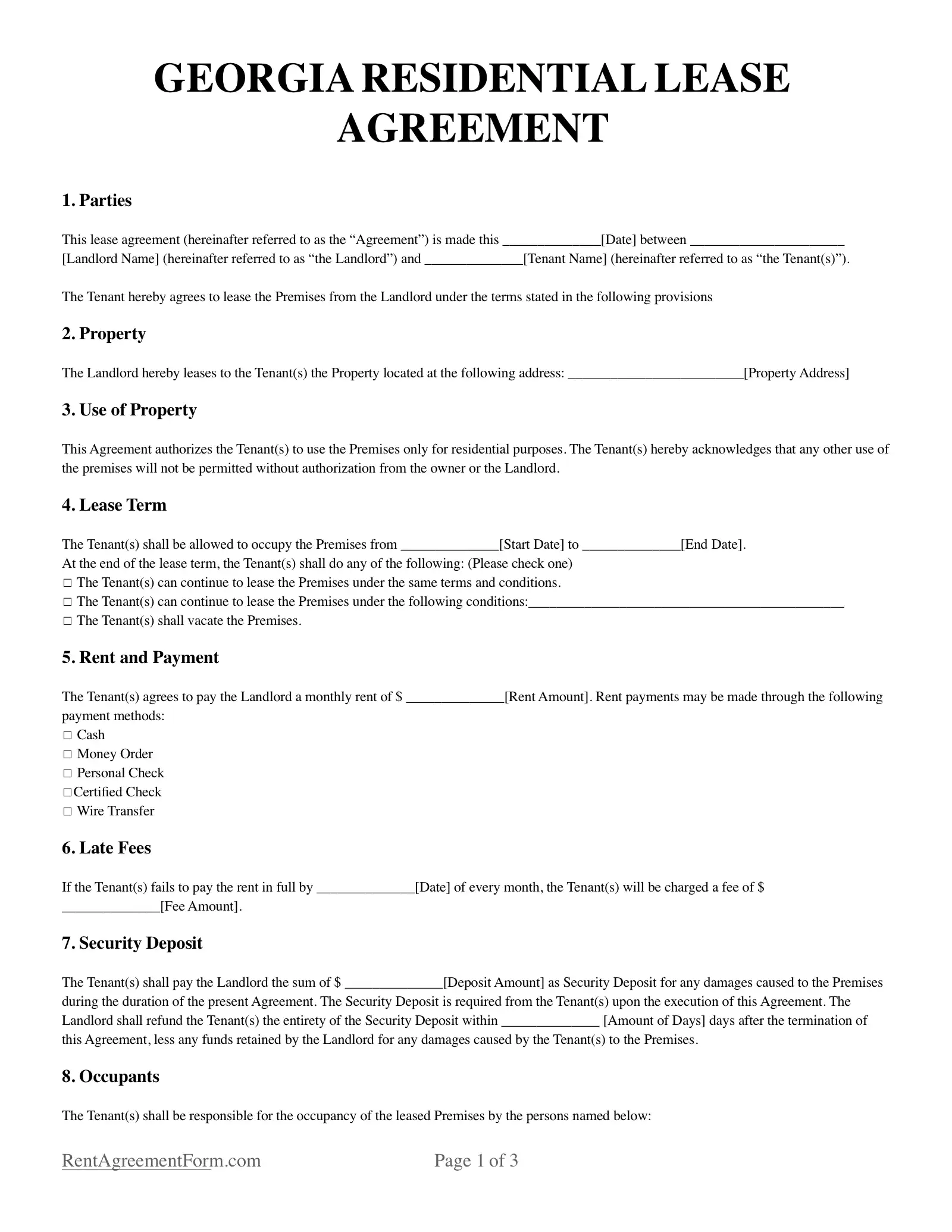Georgia Residential Lease Agreement Form
The Georgia Residential Lease Agreement Form is a formal legal document that details the terms of a lease agreement between a landlord and a potential tenant in the state of Georgia. The lease agreement outlines important details like who is responsible for the utilities and services to the property.
Before signing a lease, the potential tenant is required to submit a rental application to the landlord. The landlord will then verify the credit and employment details of the tenant before signing the lease agreement.
The standard template of the agreement includes certain key details as well as the rights and responsibilities of the involved parties. This includes the term of the lease, names of all tenants, occupancy limits, security deposits, repairs and maintenance, whether pets are allowed, rules about pet ownership (if applicable), and more.

Required Disclosures in a GA Residential Lease Agreement
Georgia law requires landlords to provide tenants with certain information about the real estate property for lease before they sign the lease agreement form.
Some of the required disclosures are listed below: Others are explicitly stated in Georgia State Law (GA Code § 44-7-3 (2018)):
- Addresses of the owner and manager of the premises
- Security deposit details
- Nonrefundable fees
- Previous damages to the apartment or property for lease
- Information on the registered database of sexual offenders
- Domestic violence victim rights
- Shared cost of utilities
- Installation and maintenance details of smoke/carbon monoxide detectors
- Availability of fire hazard protection
- Presence of health hazard chemicals (like lead paint)
Residential Lease Agreement for Georgia
The law in Georgia does not require landlords to have a grace period for paying rent. Any unpaid rent after the due date is considered a late payment and may be subject to a late fee. The state also does not dictate whether or not properties should have late fees.
The inclusion of a rent grace period is upon the discretion of the landlord and its details must be included in the lease agreement template. In most cases, the standard grace period in Georgia is 3 to 7 days.
To ensure the timely payment of rent by tenants, landlords must conduct a thorough screening of the interested tenant before the lease agreement is signed. While the landlord may charge a late fee, the charge should not be unreasonably high.
Security Deposit Laws for Lease Agreements in Georgia
No law in Georgia sets the maximum security deposit amount to be taken from a tenant. However, to be sure, landlords and tenants should check with city and county laws to know if such a limit exists.
Georgia law does state that the landlord must return the security deposit of the tenant within a month after the tenant has vacated the real estate property and returned the keys. In case a landlord has decided to retain a part of or the full security deposit to cover any damages to the property, they are required to make a statement of the charges and mail it to the tenant’s last known address (GA Code § 44-7-3 (2018)).
Helpful Resources
For more details on leasing residential properties in Georgia, you may refer to the Georgia Landlord-Tenant Handbook.